| item(s), Total: $0.00 View Cart |
| Shopping cart is empty. |
Welcome to October- we're well and truly into the Spring gardening season, and it's been lovely to see so many repeat customers come back as they're topping up their gardens again. October is our birthday month at GLSC - this year marks 17 years that Paul & I have been running the business. There's certainly been some changes along the way; and we appreciate the lovely customers who have been part of the journey. If you haven't already done so - PLEASE VOTE FOR US in this year's Organic Consumer Choice Awards. (Here's the link.) We're entered in the 'organic specialist' category. By voting, you're in the running to win for some lovely organic hampers - so it's worth your while! THANK YOU for voting ~ it is appreciated. VOTING CLOSES MIDNIGHT 7th OCTOBER.
So why not come out to Green Life soon to attend a workshop or top up on your garden goodies. We'd love to see you! Linda & The Team @ The Green Life Soil Co In this Newsletter: Jobs to do in the Garden Jobs to do in the Garden
What to Plant NowIt's a fantastic time to be gardening, with loads of options to grow right now before the real heat of summer comes. Here's a quick reminder list of some things to try:
Also - lots of herbs will do well now! Basil (pictured above right), Chives, Lemongrass, Mint, Parsley, Oregano, Rosemary, Thyme.
We've got a great range of heritage (non-hybrid) seeds currently available - and lots of vegetables and herbs coming on stream every week. Come on in and check them out! Summer-ise Your Garden!Coming out of winter, it is always difficult to remember the sting of the sun and how HOT summer days can be. We know it's coming - but it's always something of a shock when the temperatures hit over 30°. We're often asked how much sun plants like. It's true that plants need sunlight, and most flower and perform better in sun than shade... But I often say if the day is too hot for YOU to stand outside in the full sun - it's probably too hot for your plants, too! (with some exceptions, obviously). Something else to consider when buying plants is that the plant care labels are often produced in Victoria - and their climate is a little different to ours.
So even if your plants thrive for most of the year in full sun - there's a good chance that in January & February they may need a little extra TLC. The best way to help your plants is to prepare them; and here's a few pointers.
.jpg) Clay and Charlie Charcoal. Both of these mineral products are long term ways to help keep water in your soil. Both act like a sponge - meaning they are able to hold onto water, and can be more easily re-wet if the soil does dry out. Getting these products (one or both - they actually work really well together) INTO the soil profile, where the plant roots are, is extremely beneficial. Obviously if you have existing plants, you do need to be careful not to damage root systems by vigorous digging - but it is still possible to rake or "tickle" the clay into the soil. Or another trick is to dig two small holes on opposite sides of the plant, and add in the soil improver. Leave the remaining area around the plant untouched, and you haven't damaged ALL of the roots. The plant will recover, then you can come back maybe next Spring or Autumn and add more in the untouched areas - this way you're getting the clay/charcoal into the soil; just not all at once, and not totally disturbing the garden to do so. Getting these minerals into the soil BEFORE the height of summer (when plants are under the most stress from transpiration) means you can keep the moisture bank 'topped up' right from the start of the season. Clay and Charlie Charcoal. Both of these mineral products are long term ways to help keep water in your soil. Both act like a sponge - meaning they are able to hold onto water, and can be more easily re-wet if the soil does dry out. Getting these products (one or both - they actually work really well together) INTO the soil profile, where the plant roots are, is extremely beneficial. Obviously if you have existing plants, you do need to be careful not to damage root systems by vigorous digging - but it is still possible to rake or "tickle" the clay into the soil. Or another trick is to dig two small holes on opposite sides of the plant, and add in the soil improver. Leave the remaining area around the plant untouched, and you haven't damaged ALL of the roots. The plant will recover, then you can come back maybe next Spring or Autumn and add more in the untouched areas - this way you're getting the clay/charcoal into the soil; just not all at once, and not totally disturbing the garden to do so. Getting these minerals into the soil BEFORE the height of summer (when plants are under the most stress from transpiration) means you can keep the moisture bank 'topped up' right from the start of the season.If you are trying to re-wet soil that has already had clay added - be patient! Remember that clay can hold many times its own weight in water - so if you've used a kg per m2 (or more!) then that clay can hold up to 20-30 times that volume of water - so you'll need to be patient and consistent to slowly re-wet the area initially. After you've replenished the 'moisture bank' you'll find your water repellency issues have gone. I like to leave the hose on at a trickle, then come back every 5 mins or so and lightly dig over the soil - like making mud pies as a kid - and you'll eventually work the water through the soil profile... but it does take time! 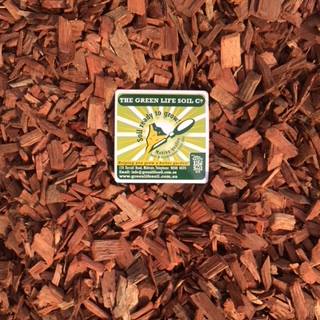 Mulch. Remember that the best mulches are (a) chunky particles to allow water to easily penetrate to the soil below, while providing a nice, thick insulating layer; and (b) light in colour to reflect heat. We need to get away from the "black mulch" mentality; and steer well clear of mulches that use peat - which in itself absorbs water; preventing it from getting into the soil below! Make sure you thoroughly water before laying down mulch - again getting the moisture bank 'topped up'. Woodchip mulches are great for trees, fruit trees, shrubs and native gardens - places where you can allow the mulch to stay long term to do its job. For vegie gardens, where you're likely to be digging and replanting each season, straw mulches are a great option. They break down more quickly to add valuable organic matter. (Woodchip mulches can be used on your vegie garden - but tend to be a bit annoying when you have to rake away mulch to re-plant new seedlings - which is really the only reason most people favour straw mulch.) Peas, Lucerne and Lupins are all nitrogen fixing plants, so the common thinking is that these plants return more nitrogen to the soil as the straw breaks down. This is true to an extent - but if you're already adding other sources of nitrogen to your garden (with manure, compost and fertiliser) the benefits are probably negligible. But all three mulches - pea straw, lucerne straw and lupin mulch are all good quality mulches. Wheat or oat straw is another option, and usually cheaper. Mulch. Remember that the best mulches are (a) chunky particles to allow water to easily penetrate to the soil below, while providing a nice, thick insulating layer; and (b) light in colour to reflect heat. We need to get away from the "black mulch" mentality; and steer well clear of mulches that use peat - which in itself absorbs water; preventing it from getting into the soil below! Make sure you thoroughly water before laying down mulch - again getting the moisture bank 'topped up'. Woodchip mulches are great for trees, fruit trees, shrubs and native gardens - places where you can allow the mulch to stay long term to do its job. For vegie gardens, where you're likely to be digging and replanting each season, straw mulches are a great option. They break down more quickly to add valuable organic matter. (Woodchip mulches can be used on your vegie garden - but tend to be a bit annoying when you have to rake away mulch to re-plant new seedlings - which is really the only reason most people favour straw mulch.) Peas, Lucerne and Lupins are all nitrogen fixing plants, so the common thinking is that these plants return more nitrogen to the soil as the straw breaks down. This is true to an extent - but if you're already adding other sources of nitrogen to your garden (with manure, compost and fertiliser) the benefits are probably negligible. But all three mulches - pea straw, lucerne straw and lupin mulch are all good quality mulches. Wheat or oat straw is another option, and usually cheaper.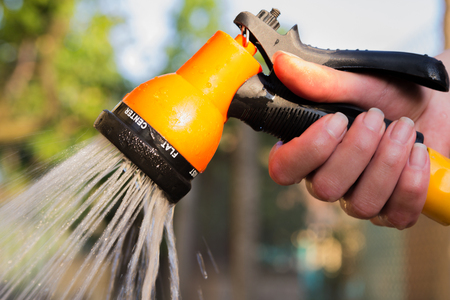 Irrigation. Think of the most efficient way you can supply water to your garden. Hand watering is great (you can water when plants need it) but only if you're around, and have the time to spend. Otherwise, look into an automated system. You're best getting in a qualified and experienced retic specialist who can help set things up for you, and teach you how to monitor and maintain the system for the long term. Check your irrigation from time to time (if you have it set to run at 4.30am and you're never up at that time - how do you know how well it's working??). As plants grow, they may hinder spray patterns, sprinkler heads can get blocked - etc. A quick test run every now and again will allow you to check everything's working as it should. (We all hate driving past that place that has a broken sprinkler watering the road!!) Irrigation. Think of the most efficient way you can supply water to your garden. Hand watering is great (you can water when plants need it) but only if you're around, and have the time to spend. Otherwise, look into an automated system. You're best getting in a qualified and experienced retic specialist who can help set things up for you, and teach you how to monitor and maintain the system for the long term. Check your irrigation from time to time (if you have it set to run at 4.30am and you're never up at that time - how do you know how well it's working??). As plants grow, they may hinder spray patterns, sprinkler heads can get blocked - etc. A quick test run every now and again will allow you to check everything's working as it should. (We all hate driving past that place that has a broken sprinkler watering the road!!)If possible, avoid watering your vegie patch with overhead watering. Moisture on plant leaves can often lead to fungal issues - you're best to water at the base of the plant directly to the soil. 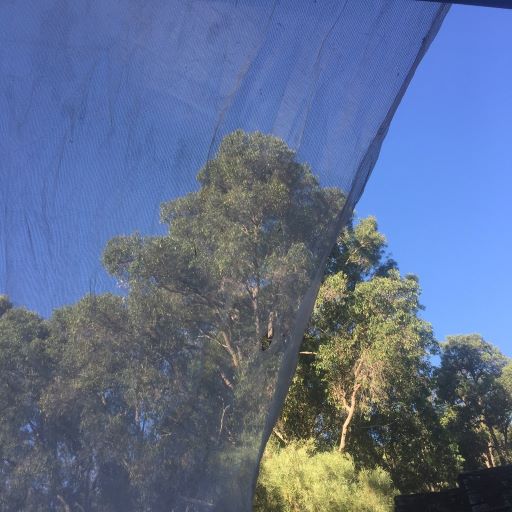 Shadecloth. Over the real height of summer, your garden (especially your vegie patch) will most likely need some shade to help it survive through the hottest part of the day. Depending on the microclimate in your back yard - ie. how protected it is from hot wind, whether it has reflected heat from fences or house walls, or how much shade it gets from trees, etc. - these factors will determine how much shelter you need to provide. Every year, there are debates about WHAT PERCENTAGE shadecloth to use for your garden. The truthful answer is - it depends! Some garden gurus advocate 30%. This is probably useful if your garden doesn't get full sun all day, and is quite protected from wind. Shadecloth. Over the real height of summer, your garden (especially your vegie patch) will most likely need some shade to help it survive through the hottest part of the day. Depending on the microclimate in your back yard - ie. how protected it is from hot wind, whether it has reflected heat from fences or house walls, or how much shade it gets from trees, etc. - these factors will determine how much shelter you need to provide. Every year, there are debates about WHAT PERCENTAGE shadecloth to use for your garden. The truthful answer is - it depends! Some garden gurus advocate 30%. This is probably useful if your garden doesn't get full sun all day, and is quite protected from wind.Others say 50%. Probably the 'safest' option for most people - and is certainly going to be beneficial. However, our vegie garden is quite exposed and it gets a few degrees hotter where we are in the hills - we have trialled 50% and found it to be insufficient, so we go for 70%. This higher amount of protection isn't something you'd want to have up all year around - so some kind of removable shade is the best option. As far as shadecloth for gardens goes, white is considered to be the best colour for plants (and is used by commercial nurseries) as it doesn't affect the colour spectrum of light getting through. Darker colours are more comfortable for humans, but for plants, dark colours tend to lead to leggy and straggly growth, so stick to white or light coloured shadecloth - especially for the heavier percentages.
At Green Life we have the following grades: 30% GREEN (white is not available at this percentage, but because it is a lighter coverage anyway, it doesn't affect the plants as much), 50% WHITE and 70% WHITE; 4m wide.
Supplying shade to your garden can be as fancy or as simple as your budget and imagination can stretch! A few stakes or star pickets can be used for temporary arrangements; or you can go for fancy, purpose built shade sail structures. Even if on the hottest days of the year you simply throw an old bed sheet over your plants for the day - that's better than nothing! 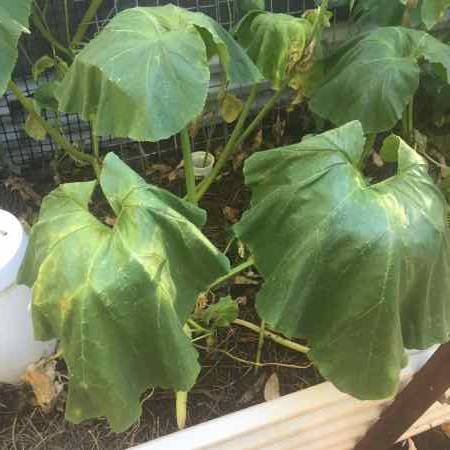 Plant choices. As Spring progresses, if you're planting out new plants, definitely plan your vegie garden thinking ahead of the hottest weather to come. Leafy greens (with the possible exception of silverbeet) tend to be more tender; and will bolt to seed and taste bitter if they're too hot and too stressed. Keep them for shady spots in the garden, or plant in containers that can be moved when they need extra protection. Things like corn, artichokes, tomato, basil, eggplant, sunflowers and snakebeans will all thrive in a sunny spot - providing the water is kept up. Your pumpkins, zucchini, cucumbers and melons can tolerate the sun - but their large, fleshy leaves will go limp in the heat of the day as part of their natural protection to avoid water loss (as pictured right) - bouncing back once the temperature cools down. Plant choices. As Spring progresses, if you're planting out new plants, definitely plan your vegie garden thinking ahead of the hottest weather to come. Leafy greens (with the possible exception of silverbeet) tend to be more tender; and will bolt to seed and taste bitter if they're too hot and too stressed. Keep them for shady spots in the garden, or plant in containers that can be moved when they need extra protection. Things like corn, artichokes, tomato, basil, eggplant, sunflowers and snakebeans will all thrive in a sunny spot - providing the water is kept up. Your pumpkins, zucchini, cucumbers and melons can tolerate the sun - but their large, fleshy leaves will go limp in the heat of the day as part of their natural protection to avoid water loss (as pictured right) - bouncing back once the temperature cools down. Regular water (as in the timing/spacing of applications of water) is important for summer vegetables - particularly to avoid blossom end rot in tomatoes, capsicum, eggplant. (You know how your pets like to be fed around the same time each day? Your plants are the same - and will adapt to the spacing of water applications. Ad-hoc watering seems to 'confuse their biology' and make them more prone to problems.) Blossom end rot is often blamed on a calcium deficiency - which is only part truth... the issue is that irregular watering means calcium can't be CONSISTENTLY taken up by the plants; which it needs to be for optimum cellular development.
You CAN over water your plants - particularly those in planters that may not have great drainage. (Over watering is the main cause of death for indoor plants, for example.) Do check your soil and beneath mulch from time to time - your finger makes a very efficient and cost effective water meter! Providing you do all the right things to prepare your garden for the heat - you'll be pleasantly surprised that your garden will thrive using LESS water than before! Plus you'll be rewarded with a cooling, green environment around your home to enjoy in all seasons. VIP Special Offer
The pellets swell up once wet, and break up to provide a protective layer. Surprisingly, while they can appear to form a ‘crust’ – they still allow water to penetrate and keep a lovely, most surface to the soil below. A number of keen gardeners who brew their own compost teas favour adding lucerne pellets because it boosts protozoa levels. Protozoa is a favourite food source for worms – and we’ve certainly found a very healthy worm population develops where we’ve used the lucerne pellets.To use the pellets, apply a light layer (so you can still see the soil below) then wet thoroughly. Leave them for a while and they’ll swell up and expand. In a day or two, you can add more if you need to. (Over applying can lead to a volcanic type eruption and overflow of mulch!). Something else to be aware of – in certain conditions you may find a white mould appearing on the surface of the lucerne after a few weeks. 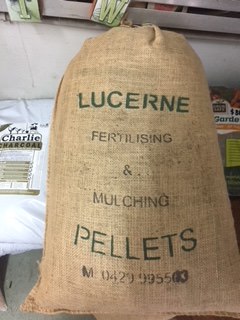 This is quite natural and won’t harm your plants. If you find it unsightly, it will disappear with watering, or lightly turn the surface over with a garden fork. This is quite natural and won’t harm your plants. If you find it unsightly, it will disappear with watering, or lightly turn the surface over with a garden fork. Normally we sell a 15kg hessian sack of the pellets for $29. For the month of October, VIP’s can purchase them for $24. For online orders – you must be logged into the VIP section to see the special prices. In-store shoppers (or if adding them to a bulk delivery) – please ask for the October discount. The pellets are a quality WA product, come in a compostable hessian sack, and Vegan friendly! Try some this Spring. Photo Competition
Congratulations to Daniel B from Helena Valley who has sent us in these photos from his garden. This winter, he bought Certified Organic seed potatoes and garlic from us - and his crops have been grown without any pesticides.
He sent us in this gorgeous photo of his kids with some of their potato crop, saying "we just dug them up together today to make a Shepherds pie. We found so many we had to drop a few kgs to the neighbours. The kids are really loving getting in the garden. Really happy with the seed potatoes and garlic I got from you guys!" Thanks Daniel! Remember to send in your garden photos to be in the monthly draw for a $50 voucher to spend @ Green Life. You've got to be in it to win it!!! Retail Outlets Update
|

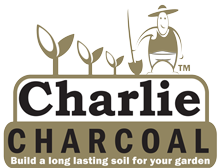

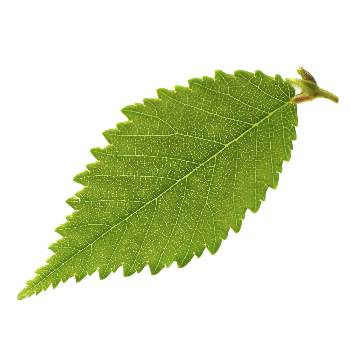

 It's certainly the time of year for various Awards... This year we've entered the Belmont & WA Small Business Awards again; and we're thrilled to announce we've been selected as finalists; both in the 'marketing' and 'sustainable business' categories. The winners will be announced at the awards presentation late October - so we'll keep you posted how we go. Fingers crossed for a win; but it's lovely to be recognised as a finalist regardless.
It's certainly the time of year for various Awards... This year we've entered the Belmont & WA Small Business Awards again; and we're thrilled to announce we've been selected as finalists; both in the 'marketing' and 'sustainable business' categories. The winners will be announced at the awards presentation late October - so we'll keep you posted how we go. Fingers crossed for a win; but it's lovely to be recognised as a finalist regardless.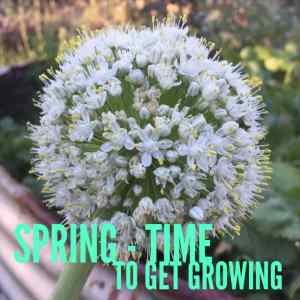 Happy gardening.
Happy gardening.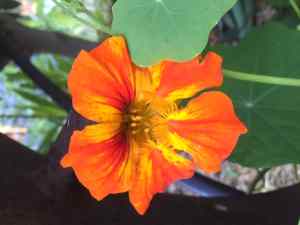 Keep an eye out for bugs in the garden as weather warms up. White cabbage butterfly are starting to emerge. Try companion planting of Dill & Nasturtiums (pictured right) to confuse them or act as decoy plants. Also white flowers like petunias, pansies, cosmos etc. that flutter in the wind can help protect plants. In the same way some people use upturned eggshells on sticks, or make butterfly mobiles out of old milk bottles; you can make the white butterflies look for somewhere less populated to lay their eggs. They will avoid areas that are 'taken' to give their offspring a better chance of survival; so use that territorial instinct to your advantage!
Keep an eye out for bugs in the garden as weather warms up. White cabbage butterfly are starting to emerge. Try companion planting of Dill & Nasturtiums (pictured right) to confuse them or act as decoy plants. Also white flowers like petunias, pansies, cosmos etc. that flutter in the wind can help protect plants. In the same way some people use upturned eggshells on sticks, or make butterfly mobiles out of old milk bottles; you can make the white butterflies look for somewhere less populated to lay their eggs. They will avoid areas that are 'taken' to give their offspring a better chance of survival; so use that territorial instinct to your advantage!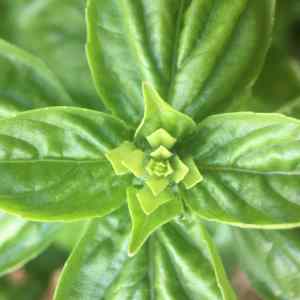 efficient (by reducing leaching) it's going to help your soil retain moisture over the summer months to come. See article below for more summer gardening tips!
efficient (by reducing leaching) it's going to help your soil retain moisture over the summer months to come. See article below for more summer gardening tips!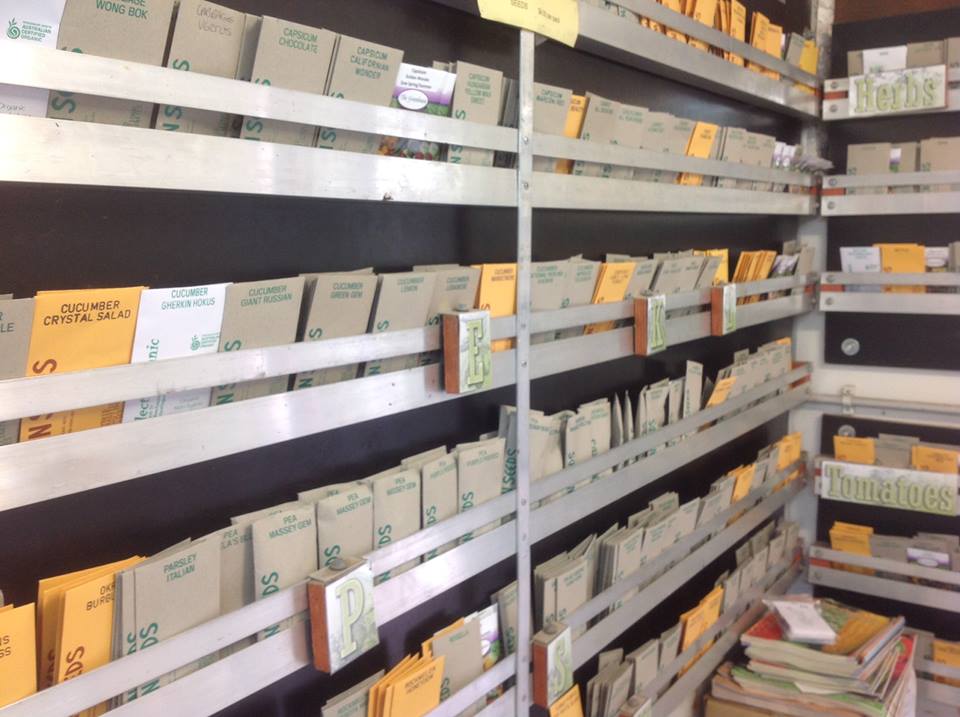 We have free downloadable planting guides here
We have free downloadable planting guides here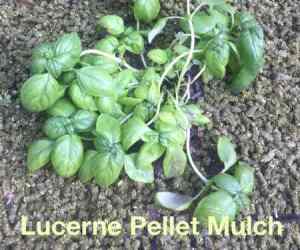 One of the products we love here @ GLSC is the Lucerne pellets for mulching. These both feed and protect the soil; and make a great way to fertilise your pots – especially those around your entertaining areas – no more smelly manure or blood & bone!
One of the products we love here @ GLSC is the Lucerne pellets for mulching. These both feed and protect the soil; and make a great way to fertilise your pots – especially those around your entertaining areas – no more smelly manure or blood & bone!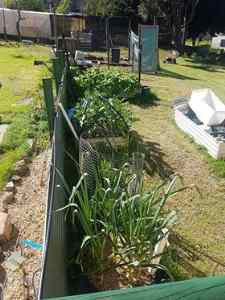

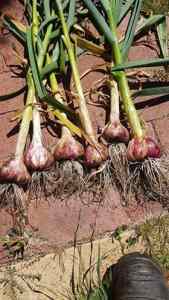
 Please support the local & independent businesses who support us. You'll find great advice and friendly service close to home!
Please support the local & independent businesses who support us. You'll find great advice and friendly service close to home!




















